Adam Smith Science & Communications Officer, ANH-Intl
KEY POINTS
- The range of products on show at NPE was notably reduced this year, under the influence of the EU-inspired regulatory juggernaut
- UK herbal product retailers are confused over the implications of the THMPD, largely due to a lack of information from regulators
- The panel presentation in which ANH-Intl was involved was standing-room only, reflecting the concerns of the UK herbal products industry
- An alliance of trade associations has come together to contest the massive threats posed by the proposed generic health claim bans under Nutrition and Health Claims Regulation
- Collaboration between campaigns, organisations and individuals will be vital to safeguard natural healthcare
The UK natural health industry’s key annual event, Natural & Organic Products Europe (NPE), took place on Sunday 3rd and Monday 4th April 2011, at London’s Kensington Olympia. As always, the hall was filled with exhibitors displaying their products, from food supplements and natural remedies to organic food and drink. Amid the crush of people networking, making connections, placing orders, swapping information and generally doing what people at trade shows do, there was ANH-Intl: manning the stand and attending the presentations most relevant to our campaigns over the weekend, all in the interests of keeping you informed. Not only that, but a panel discussion on the herbals issue on the second day of NPE, in which Dr Robert Verkerk participated, was standing room only!
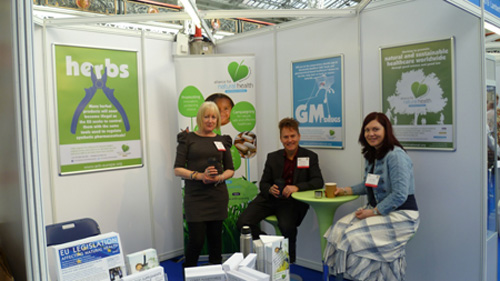
Yvonne England, Robert Verkerk and Meleni Aldridge on the Alliance for Natural Health stand at NPE
Peeling and revealing the THMPD
Perhaps unsurprisingly, fewer exhibitors were displaying herbal products at this year’s NPE: after all, it is only 18 days until full implementation of the Traditional Herbal Medicinal Products Directive (THMPD) on 1 May 2011. This flawed piece of European Union (EU) legislation will make many hundreds of perfectly safe herbal products illegal overnight in Member States like the UK, if their manufacturers have not obtained a Traditional Herbal Registration (THR) for them under the scheme. No wonder, then, that fewer herbal products were on display, especially with a gang of grey men from the Medicines and Healthcare products Regulatory Agency (MHRA) patrolling the show. In fact, there was a lower overall diversity of products this year, no doubt reflecting the crushing progress of the mass of EU regulation beginning to bear down on the industry.
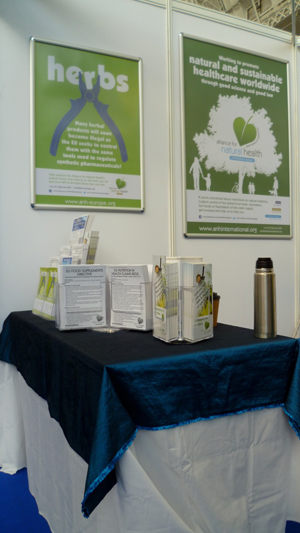
The Alliance for Natural Health stand with posters from our poster campaign and literature
Even at this late stage of the game, one word best describes the situation surrounding the THMPD: confusion. According to Alan Martin, proprietor of Food For Thought in Kingston Upon Thames and Guildford, the situation is particularly acute among retailers – so much so, in fact, that he has made a short film that expresses the frustration felt by many of his colleagues. Called Attack of the Traditional Herbal Medicinal Products Directive – Peeled & Revealed: You, Me & THMPD, it was shown at NPE on Monday morning in the Keynote Theatre. Around 40 people attended the screening, which was wonderful given that it began at 9.30 am, when the show opened, and that it was not even mentioned in the NPE show guide!
As Mr Martin states in the video, “I’ve had a couple of manufacturers say to me, “I really don’t know why you’re confused about this! It’s quite clear what’s happening.” But you know what? I am confused, and the more I speak to other retailers, I’m hearing the same story.” The picture that emerges from the film is of authorities that are simply not providing enough clear information to retailers on what the THMPD will mean for them. “I’m always very pro-active about what I do,” says Liz Chandler of Nature’s Corner in Newbury, “and I find it impossible to be pro-active because I don’t know what I’m up against!”
The video really deserved a larger audience, which it would doubtless have received with proper promotion. The clued-up NPE attendees who did make it to the screening responded with a heartfelt round of applause, and we couldn’t agree more with Mr Martin’s closing statement: “We’ve all worked hard to build this industry…we’ve drawn a line in the sand. We’re not destroying the environment. We’re not exploiting others for gain. We’re not putting poisons in our bodies…it takes all of us to keep it alive: consumers, retailers and manufacturers. It must be a group effort, a community effort. It takes all of us.” To learn more about the effect of the THMPD on retailers of herbal products, purchase the DVD here: http://shop.foodforthoughtuk.com/store/category/3/108/DVD/
The future of herbal products in the UK
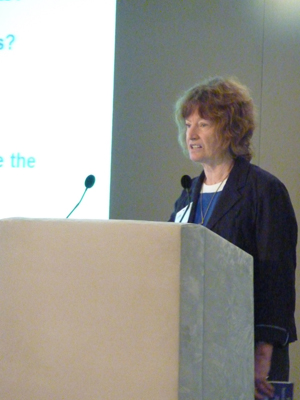
Penny Viner, former Chair and current Vice-President of the Health Food Manufacturers’ Association (HFMA)
A higher-profile discussion of the THMPD and its implications took place at 12.45 pm, when a capacity audience gathered for a session entitled The Changing Herbals Landscape and chaired by Penny Viner, former Chair and current Vice-President of the Health Food Manufacturers’ Association (HFMA) – of whom more later. After a brief introduction from Ms Viner, Alan Martin took the podium. His presentation, which covered the same ground as his DVD, set the scene for the subsequent talks by spelling out retailers’ consternation and confusion over the herbal Directive.
Next, Steve Mann, Global Regulatory Manager for Nelsons, gave the audience a 5-minute, whistle-stop tour around the THMPD’s implications for herbal products and manufacturers. Manufacturers have had to assess their portfolios of products, he said, to decide whether they have sufficient resources to keep their products on the market given the costs involved in applying for a THR. Even when a THR has been granted, the THMPD regime ensures that costs continue to accrue as a result of ongoing studies, license renewals and ongoing pharmacovigilance requirements. Mr Mann ended by pointing out that enforcement of the THMPD has, in effect, already begun: in February 2011, a man was given a 6-month suspended sentence for selling unlicensed herbal medicines.
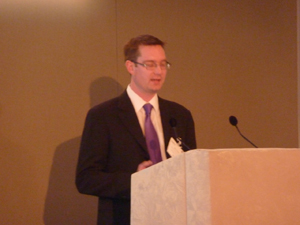
Steve Mann, Global Regulatory Manager for Nelsons
Michael McIntyre, Chair of the European Herbal and Traditional medicine Practitioners’ Association (EHTPA), then spoke to the audience on Statutory regulation for herbalists: how did we get here? As one of the key architects and long-term campaigners for statutory regulation of herbalists in the UK, the profession has much to thank him for. Unfortunately, the strict requirements of a 7-minute presentation on the topic caused him to omit certain important facts. He did not get around to mentioning the disparity between the UK government’s position and that of the MHRA; neither did he cover the danger that statutory regulation may spell an end to onsite prescribing, a right that has been treasured by herbalists in the UK since the time of Henry VIII. His position was that “herbal safety is a concern”, and that statutory regulation will ensure continued availability of individualised herbal remedies. For a wider view of statutory regulation, we recommend visiting our stories here or here.
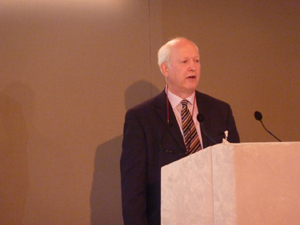
Michael McIntyre, Chair of the European Herbal and Traditional medicine Practitioners’ Association (EHTPA)
The final speaker of the session was our own Dr Robert Verkerk, on the topic of Challenges that lie ahead: Maintaining a diverse UK/EU herbal market after 1st May 2011. Dr Verkerk began by making the point that the UK government may have scored political points and won over many herbalists by announcing statutory regulation, but what about retailers? Those larger companies who are getting plenty of THRs for their products are, unsurprisingly, positively delighted about the THMPD, but many retailers and manufacturers are struggling. He went on to point out that vast numbers of herbal products have sold safely as botanical food supplements for many years, and that by reclassifying many of these products as unlicensed herbal medicines, the MHRA is allowing the THMPD to interfere with the UK food supplement regime. Of course, when herbal products cannot access the THMPD – for example, by lacking a history of 15 years’ use in the EU out of a total of 30 years’ use – and also cannot be sold under EU Member State food supplement laws, they effectively ‘fall between two stools’ of regulation and become illegal. This is the very situation we see playing out today.
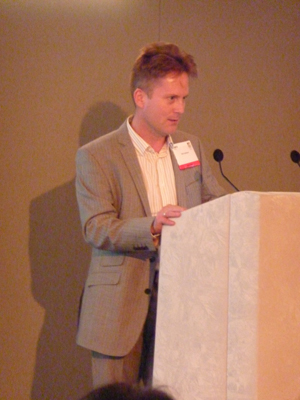
Dr Robert Verkerk, the Alliance for Natural Health International
For this and many other reasons, detailed here, ANH-Intl and our partners in the European Benefyt Foundation (EBF) are moving forward with a judicial review of the THMPD, beginning at the Royal Courts of Justice in London. Dr Verkerk briefly explained for the audience the rationale behind the judicial review, along with the hoped-for outcome of the legal challenge and related ANH-Intl/EBF initiatives: a fair and accessible food supplements regime; an inclusive THMPD that effectively regulates herbal products from all traditional systems of medicine; and an EU-wide system for practitioner-prescribed herbal products.
Beyond the THMPD
Unfortunately, the THMPD is only one aspect of the deluge of legislation affecting natural healthcare in the EU. The final session of the day, Legislation: getting the best outcome for Britain, attempted to untangle the problems posed by the Food Supplements Directive (FSD) and related maximum permitted levels (MPLs) of vitamins and minerals in food supplements, and of the Nutrition and Health Claims Regulation (NHCR). Unfortunately, perhaps because it came at the end of a packed presentation schedule, plenty of spare seats were available during the session.
Graham Keen, Executive Director of the HFMA, brought a powerful message for the audience: that they should stop focusing on single issues in the face of a raft of threatening legislation for the industry. Mr Keen asserted that the NHCR, for instance, is “The most damaging thing that could happen to our industry – bar none!”, which will cause a 25% decrease in the size of the EU market for natural health products. We tend to agree about the extent of the threat. Equally, we welcome Mr Keen’s announcement of a new campaign uniting various bodies against the NHCR, including the European Health Claims Alliance and the European Responsible Nutrition Alliance, among others. We are particularly interested in that aspect of the campaign that intends to address deficiencies in the science being used to justify rejections of health claims by the European Food Safety Authority (EFSA). We would like to offer our services to the new campaign in the spirit of cooperation that the natural health industry so sorely needs. You’ve got our details, Graham!

Standing room only for the panel discussion "The changing herbals landscape"
Sue Croft of Consumers for Health Choice (CHC), the next speaker, apparently discarded all of her copious notes in favour of a “Mrs Angry” (her words) broadside at the industry on behalf of consumers. Ms Croft worried that mixed messages coming from different campaigns will cause consumers to switch off, robbing the movement of momentum. Campaigns like CHC are not receiving enough support from the industry, she said, which leaves consumers swinging in the wind. Overstating things somewhat, Ms Croft exclaimed, “We’ve held the FSD back, single-handed, for 10 years! Can you imagine how hard that’s been?” She is also angry at the level of misinformation that surrounds natural healthcare. That upsets us, as well. Given that some of these same things weigh heavily on our minds, we look forward to more collaboration with like-minded organisations because, as Ms Croft strongly emphasised, “We’re all in this together!”
Faced with EU legislatory pressure, the natural products sector is becoming a more challenging arena in which to operate. Yearning for a new challenge, Mike Abrahams set up Wild Oats Natural Foods in Bristol to escape the relative simplicity of his previous career. In his closing presentation, he asked the audience, “Why should we embrace the medical model when it leads to illness and suffering?” Food supplements, said Mr Abrahams, are as safe as a loaf of bread, with legally sold products having caused no deaths in 40 years – while correctly prescribed medicines are responsible for around 40,000 deaths per year in the UK, he claimed. As he pointed out, when one strips away the pro-medicines propaganda, no pharmaceutical drugs actually cure degenerative diseases; and according to the British Medical Journal, only 11% of current medical interventions are known to be beneficial. The natural healthcare sector must beware of “Sleepwalking into oblivion”, by organising under one banner to resist being suffocated by regulation and co-opted by orthodox medicine.
Keyword: confusion
It seemed to us that, beyond the usual hustle and bustle of a busy trade show, confusion was the consistent theme that emerged from the key discussions around regulation of natural healthcare. Retailers, in particular, feel they are being kept in the dark, which – taking into account the trusted community service and advisory role played by reputable health stores – means that consumers are equally unclear about the true situation.
The only way around this situation is for those with the information to collaborate and get the word out in new and innovative ways. We applaud Alan Martin’s sterling effort at producing a short, sharp burst of education in the form of his DVD. ANH-Intl is always ready and willing to do whatever it takes to get the truth out to the people who matter – the retailers, manufacturers and consumers on the front line, who stand to lose livelihoods and vital medications at the whim of ignorant bureaucrats. Even more than this, however, ANH-Intl is dedicated to contributing to the development of strategies that can safeguard the future of natural health. Let’s see what we can truly achieve together.
ANH THMPD legal challenge page
ANH Nurture Traditional Medicinal Cultures page




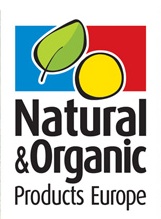



Comments
your voice counts
18 April 2011 at 12:49 pm
As a retailer I decided to be as pro-active as possible and contacted both the MHRA and other bodies. To say confusion is the watchword is an understatement. After passing through the initial MHRA individuals who knew NOTHING about this at all I was finally put through to an individual who explained that 'There's not many of us involved in this here. We're taking a product by product, report by report approach to these things and to be honest we don't really know which way it's all going.' So it seems the watchdog itself has no real clue either and are waiting for some sort of management decision. At this stage it's simply become a 'continue as you are and wait for a prosecution which may or may not come'.
As a highly responsible retailer, who undertakes as much training of my staff as possible and encourages a science-led approach to advising my customers, the uncertainty is destabilising. I've been encouraged by business investors and local government bodies into upsizing my business, taking on more staff and beginning to compete with some larger established outfits - now only to be told that a large proportion of what we sell may be banned, or may result in fines and prosecutions for our continued trading.
Please continue your good work. Previously protecting health of our consumers has always been the number one priority. Now it's become neccesary for me to worry about having to let people go in a difficult economy and rapidly downsize a thriving business. It shouldn't be a purely financial decision, for those of us who truly believe in the restoration and promotion of health through natural means, but it's become that way.
30 April 2011 at 1:34 pm
This EU Directive is totally undemocratic. Millions of people have used these medicines for thousands of years. No consultation has taken place. A legal battle is needed to ensure that democracy is restored.
02 October 2015 at 5:44 pm
this seems like a huge trade show with lots of excellent speakers with lots of knowledge. hope everyone had fun and learned a lot.
04 December 2015 at 6:53 pm
I agree that with ever increasing marketing, the natural products sector is becoming a more challenging arena in which to operate. and that has its benefits so random products cant just come in and claim they are natural.
Your voice counts
We welcome your comments and are very interested in your point of view, but we ask that you keep them relevant to the article, that they be civil and without commercial links. All comments are moderated prior to being published. We reserve the right to edit or not publish comments that we consider abusive or offensive.
There is extra content here from a third party provider. You will be unable to see this content unless you agree to allow Content Cookies. Cookie Preferences